In today’s fast-paced and interconnected world, we face a myriad of challenges that can take a toll on our mental and emotional wellbeing. Luckily, there are specialists who can help – from postnatal and family counselling to marriage, couples and teen therapy. Here, counselling practices shed light on the benefits of seeking professional support in Singapore, and some of the most common struggles and mental health issues they’re seeing right now in the expat community.
Counselling practices in Singapore offering marriage counselling and family and couples therapy
Childhood and teen challenges
As a parent, it can be distressing to hear a statement like “I wish I was dead” come out of your child’s mouth. But, before dismissing it as “just acting out”, know that self-harm and suicide is not reserved for adults. It’s more common in kids than you might think – and, in Singapore, it’s the leading cause of death among people aged 10 to 29.
DR SANVEEN KANG, clinical psychologist and founder of Psych Connect, urges parents to take threatening comments seriously. “Every year, there are tragedies in which children and teenagers take their own lives, and everyone asks themselves, ‘How could this happen?’ and ‘Why didn’t we take the threat seriously?’”
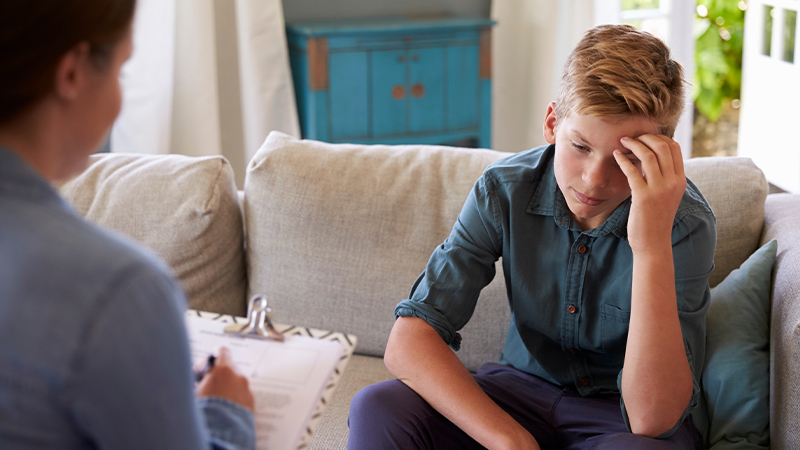
Luckily, you don’t have to deal with this alone. “Reaching out for professional help is important for your wellbeing and that of your child,” says Dr Kang. “When parents accept their child’s reality and seek help, they can steer them toward a healthier place, helping prevent dark feelings from bubbling up later on.”
At specialist psychology clinic Psych Connect, the team of psychotherapists, psychologists and counsellors have years of experience in family therapy, helping families manage mental health issues and challenges. Psychotherapy (also known as talk therapy) is one of the most effective treatment options for depression in children and teenagers. Cognitive Behavioural Therapy (CBT), Acceptance Commitment Therapy (ACT), Solutions Focused Therapy and Art Psychotherapy are among the psychotherapies used.
“The eventual goal is for our clients to be psychologically healthy and lead meaningful lives,” says Dr Kang on family therapy. “We’re committed to empowering the whole family.”
Warning signs to watch out for in children:
- Verbal threats
- Changes in eating or sleeping habits
- Frequent or pervasive sadness
- Withdrawal from friends, family and regular activities
- Complaints about physical symptoms such as stomach aches and headaches
- A decline in energy levels and in the quality of schoolwork
- An inability to think clearly or concentrate
- Preoccupation with death and dying
- Not caring about activities or things that previously mattered
- Engagement in risky behaviours and carelessness with safety
- Increased irritability
Psych Connect
10 Winstedt Road, #03-07/12/13/14/17
6493 0244 | psychconnect.sg
Trendsetters in mental health
When it comes to counselling and wellness services in Singapore, one name that pops up frequently is Singapore American Community Action Council (SACAC) Counselling, Singapore’s market-leading comprehensive mental health practice. It uses a range of evidence-based and technologically advanced techniques to provide holistic psychological support such as counselling, psychotherapy, expressive therapy, neurodevelopmental and psychometric assessments, and personality assessments for kids and adults.
Established in 1973, SACAC Counselling was created by a group of parents to support teens in the community. Today, it continues to grow under the helm of director VINTI MITTAL, a counsellor with 15 years’ experience in psychology.

The practice’s central Orchard premises houses a team of multicultural and multilingual counsellors, clinical psychologists and an educational psychologist. Together, they’re able to address various needs, from emotional and behavioural, to psychological and relationship issues. It’s also noteworthy that the SACAC Counselling team speaks 14 languages between them! Needless to say, being able to access therapy in their native language is a huge drawcard for clients.
Consultations are provided in person and virtually via various platforms seven days a week until late, with clients based in Singapore and beyond. Importantly, SACAC Counselling believes in providing support within 48 hours of a client making contact, so you can receive help from the team when you most need it.
SACAC Counselling
15 Scotts Road, #09-12
6733 9249 | sacac.sg
Counselling for expat mental health challenges
“While the expat lifestyle can have a glamorous veneer, challenges often lie beneath,” says KRISTI MACKINTOSH, psychotherapist at Promises Healthcare. “The experience of living overseas can be difficult and demanding, adding unique stressors to everyday living.”
Promises provides holistic mental health and addiction treatment and recovery services to adults, adolescents and children suffering from all types of disorders. The clinic’s team of multidisciplinary specialists – including psychologists, psychiatrists and therapists – treat local and expat patients alike.
Studies show that expats as a group are 40 percent more likely to develop mental health conditions like depression, stress and anxiety, than those who never move abroad.

“The challenging environment and less support than at home often leads to an increase in drinking, smoking, drug abuse – yes, even in Singapore – or self-harm to try and distract from the negative feelings.”
What’s more, the loss of the informal network of support from friends, family and acquaintances back home only compounds the stress and anxiety.
“Expats may feel like they can’t share their difficulties because it’s like complaining or admitting to failure. This isolation can lead to depression,” says Kristi. “Yet, while it may require more emotional honesty or reliance on those around you than you might usually be comfortable with, connection and support from others is important.
If you feel that you’re not coping or you’d like extra support with your mental health, reach out to your GP or a professional counsellor or psychologist for therapy in Singapore.
Tips to help reduce stress:
- Get enough sleep to help regulate your mental and physical health
- Eat a balanced diet to prevent deficiency in minerals that may cause low mood
- Stay active
- Try not to overdrink, over-eat or smoke
- Do something that brings you joy, from reading a book to trying a new restaurant
Promises Healthcare
#09-22/23, #09-16/17/18, #11-15/16 Novena Medical Centre, 10 Sinaran Drive
6397 7309 | promises.com.sg
Navigating gender identity
Gender identity is the personal sense of one’s own gender, which can encompass male, female, both, neither or any point in between. When your gender identity does not correspond with your birth assigned sex, it may feel confusing or distressing.
“This incongruence often results in discomfort with one’s body and societal gender norms,” says DR HANITA ASSUDANI, a clinical psychologist at Alliance Counselling. “Frequently, gender diverse individuals face stigma, discrimination and rejection, amplifying the strain on their mental health.”

At Alliance Counselling, experienced therapists offer gender identity assessments and counselling in a safe and supportive environment. Here, individuals can delve into the complexities of their thoughts, feelings and experiences, and express themselves authentically. The therapists are well-versed in gender diversity and guide individuals in understanding their identity, navigating societal challenges, potential transitions, and addressing emotional struggles.
Additionally, counselling serves as a means to foster open dialogue within families, facilitating discussions that encourage inclusivity and empathy. “This holistic approach contributes to mental wellness, self-acceptance and overall fulfilment,” says Dr Assudani on the subject of family therapy.
Founded in 2009, Alliance Counselling’s team of 30 multilingual counsellors and psychologists provide marriage counselling, along with empathetic professional support and guidance to men, women, couples, children, teenagers and families, providing them with the skills and tools to cope with life’s challenges in each stage of their life.
Alliance Counselling
• #04-03 & #03-02 Cluny Court, 501 Bukit Timah Road
• 121 Upper East Coast Road, #02-01
6466 8120 | alliancecounselling.com.sg
Family-focused counselling
Founded by American psychologist Dr Glenn Graves, Counseling Perspective has been serving the expat and Singaporean community since 2006. With four locations across Singapore – Raffles Place, Oasis at Science Park, Joo Chiat on the East Coast and Sentosa – the welcoming family counselling and wellness clinic is well-known for tackling the most complex issues and provides a holistic approach to individual, couples and family therapy. They also offer online counselling sessions.
The Counseling Perspective team is culturally diverse and includes highly trained therapists, coaches, mediators and wellness practitioners. Together, they help patients (from ages three and up) address a myriad of issues through tailored and empathetic counselling sessions, including children’s mental health breakdowns, addictions, personality disorders, marital discord and existential life transitions. The Science Park Drive facility especially caters to youths and families, with the wellness clinic further offering art, play and speech therapy.
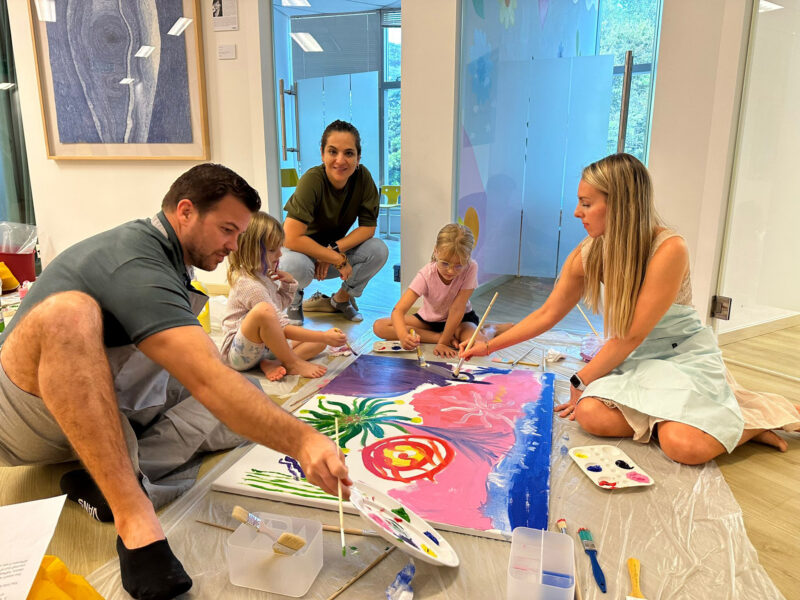
The highly experienced and caring therapists are also uniquely equipped to assist with ADHD, anxiety, OCD, depression and other areas, using specialised tools and techniques such as neurofeedback assessment, peak performance training and the brain training approach. For more information on these therapeutic models, visit mindfulpathway.com.
With a deep passion for helping families, Counseling Perspective hosts regular community-focused programmes, including parent, child and adult workshops, wellness and transformation retreats and support groups. They also offer corporate workshops and Employee Assistance Programmes.
Counseling Perspective
9853 7253 | 9636 8060 | counselingperspective.com
Transition to motherhood
Becoming a parent is a significant life transition that comes with a host of new responsibilities and changes in daily routine. While it can be a joyful and fulfilling time, it can also be overwhelming and isolating, especially if a new mother is dealing with loneliness and has set high expectations for herself.
“Feeling overwhelmed is normal, but developing unpleasant thoughts over a longer period of time is not,” says TANJA FAESSLER, a certified coach and counsellor at Counsellingconnectz. “Anxiety can start to build during the pregnancy or after the birth as some new mums try to overly control the baby’s sleep, weight gain and other areas. Addressing these emotions and finding effective coping strategies that work best for you is essential.”

Counsellingconnectz’s team of certified counsellors use a broad range of techniques to support new mothers and provide emotional and mental health therapy for family members in Singapore. In fact, the team has profound experience in maternal mental health, helping mums adjust to their new role and navigate the unique emotional challenges that come with this transition.
Other areas of expertise include depression, anxiety, burnout, change and life transitions, coaching, cognitive behaviour therapy, marriage counselling, couples therapy, family therapy, trauma and stress management, and acceptance and commitment therapy in Singapore.
Counsellingconnectz
#16-07 Far East Shopping Centre, 545 Orchard Road
9784 4889 | counsellingconnectz.com
Choosing the right counselling therapist in Singapore
In the pursuit of mental wellbeing, finding the right therapist is paramount, says DR MAGDALEN CHENG, a registered existential psychotherapist and director of Encompassing Therapy and Counselling. Not all therapists employ the same approach, she explains, making it vital to discern your own needs and ensure that your philosophy of mental healthcare aligns with that of your therapist.
“Despite diligent research, clients sometimes find themselves feeling unheard or more vulnerable,” says Dr Magdalen. “If you advocate for natural healing, you’re not going to see a doctor who pushes for you to take medication each time you see them. This is the same when choosing a therapist: he or she should resonate with your philosophical stance. It goes beyond affable bedside manners.”

As Singapore’s first existential private practice, Encompassing Therapy believes the initial dialogue with clients should be around what therapy involves and the importance of exercising autonomy in the therapeutic experience.
“By interviewing potential therapists, you initiate your healing journey and take charge of your therapy path,” says Dr Magdalen. “This empowerment is the essence of existential therapy, where clients are encouraged to make autonomous decisions, even when selecting a therapist.”
Common existential concerns handled by the practice include life transitional issues such as arrival of a new baby, parenting, adulting, divorce, and grief and loss.
Three points to consider when selecting a therapist
#1 What are my views on mental wellbeing and how do those of the therapist align with mine?
#2 What are my therapy expectations and goals?
#3 How would I prefer my therapist to engage with me? Would I prefer warm support or focused challenge; therapist directiveness or client directiveness; past orientation or present orientation; and emotional intensity or emotional reserve?
Encompassing Therapy and Counselling
16 Mohamed Sultan Road, #06-02
encompassing.co
Focus on cross-cultural relationships and marriage counselling
While every relationship has its ups and downs, cross-cultural issues can put an additional strain on a couple. “In an effort to integrate each person’s culture, one or both persons in the relationship may start feeling that they are no longer ‘themselves’ and that they are losing important parts of themselves or their culture,” says SHEE WAI, founder and director at The Counselling Place, on the importance of marriage counselling.
From lifestyle disagreements and loss of identity, to conflicts over differences in beliefs, clashes in parenting and struggles with families, The Counselling Place is experienced in guiding couples from diverse cultural backgrounds through unique and intricate challenges. Through marriage counselling and family and couples therapy, the team of professional therapists will empower couples to step outside of their cultural norms, learn new communication skills, break through language barriers and see each other with greater clarity.

With 10 languages spoken between them – English, German, Spanish, Thai, Indonesian, Korean, Japanese, Malay, Mandarin and Cantonese – The Counselling Place’s therapists are able to communicate with clients in their native language, alleviating common issues of miscommunication. In fact, most of the therapists providing marriage counselling have a cross-cultural partner themselves!
“Cross-cultural issues can be successfully worked through within the safe space of a counselling setting with a trained therapist, counsellor or psychologist,” says Shee Wai.
Beyond couples therapy and marriage counselling, the practice also specialises in family therapy and therapies for individuals experiencing challenges.
The Counselling Place
#11-00 The Octagon, 105 Cecil Street
thecounsellingplace.com
Adjusting to expat life through family therapy and marriage counselling
The expat experience is a transformative one that opens the door to new horizons, cultures and experiences. However, it can also come with its fair share of challenges. REBECCA VERSOLATO, a psychoanalyst and family therapist at White Canvas Therapy, provides a safe and nonjudgmental therapeutic space for individuals, couples and families to discuss concerns, roles and responsibilities to enable a smoother and more enriching transition.
“For families to thrive and build a fulfilling life in a new environment, it can be necessary for them to draw on professional support and guidance,” says Rebecca. “From language and cultural barriers, to relationship tensions and frustrations with their new reality, family and couples therapy can identify and navigate the ’new’ needs of a family and implement a fresh routine.”
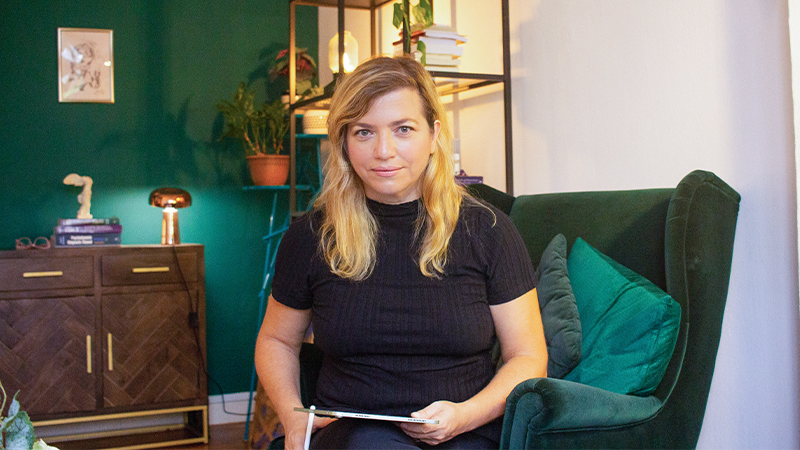
From a couple’s therapy perspective, this may involve discussions around better communication, setting clear boundaries and establishing expectations around validation and emotional, social and financial dependence. For individuals, a psychoanalytical approach can clarify past issues and traumas, and provide a deeper understanding of behaviour, feelings and relationships, and the patterns between them.
Further areas of expertise include counselling therapies for issues relating to divorce, infidelity, intimacy and sexuality.
Rebecca Versolato, White Canvas Therapy
16 Mohamed Sultan Road
rebeccaversolato.com
A personalised journey to mental wellbeing
Equipping clients with the tools they need for long-term mental and emotional wellbeing is at the core of the ImPossible Psychological Services philosophy. “Our goal is not to just alleviate symptoms, but to empower individuals and couples to navigate life’s challenges confidently and holistically,” says MUHAMMAD HAIKAL BIN JAMIL, senior clinical psychologist and founder of the practice. “We’re uniquely equipped to delve into the intricacies of emotions and interpersonal dynamics.”
The dynamic team of mood and relationship specialists have distinct personalities and areas of specialty, allowing them to tailor their therapies to their client’s unique needs and craft personalised journeys for every individual and couple who walks through the doors. “We adapt our methods to suit the goals and comfort levels of each client,” says Haikal. “This ensures that the strategies we provide to our clients resonate deeply and lead to lasting transformation.”
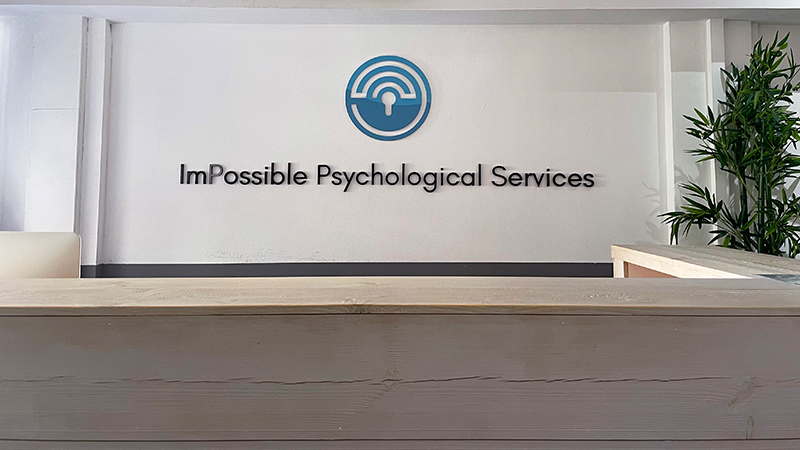
ImPossible Psychological Services offers client-centred counselling for adults, children and adolescents aged eight to 18, along with corporate services, psychological assessments, couples therapy and marriage counselling. The practice draws on a repertoire of evidence-based therapeutic methods, including Schema Therapy, Cognitive Behaviour Therapy (CBT), Choice Therapy and Reality Therapy (CTRT), and Psychodynamic Therapy.
By fostering a partnership between therapist and client, the path to wellness at ImPossible Psychological Services is a collaborative one, drawing on the client’s innate strengths and achieving breakthroughs.
ImPossible Psychological Services
360A Joo Chiat Road
9099 9081 | impossiblepsychservices.com.sg
Understanding teen life transitions
While expat families face unique challenges, children and teens can have a particularly hard time adapting to their new life. From the stress of relocating to making new friends and starting a new school, settling in a foreign country is a big adjustment.
“Children and adolescents experience life transitions differently to adults as they’re unable to prepare and predict how such a huge change can look and feel. It is normal for their experience to bear similarities to a grieving process – saying goodbye to familiarity, friends, family members and so many memories,” says MARIYA ANGELOVA, Senior Counsellor at Sofia Wellness Clinic, a leading provider of mental health services in Singapore.
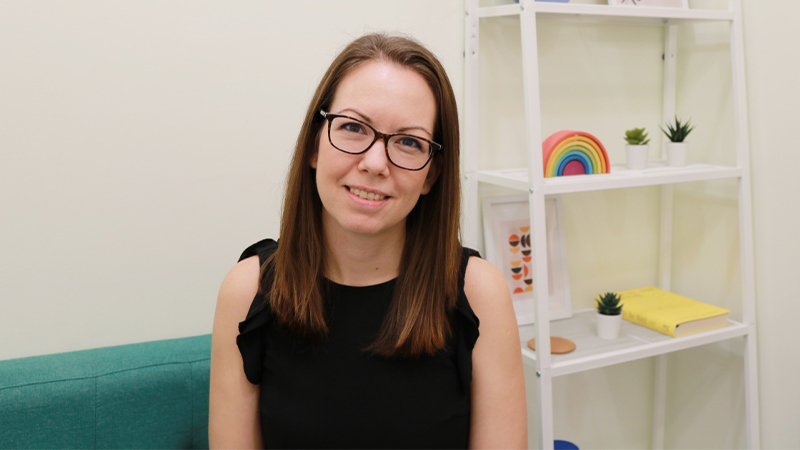 Each person’s capacity to adapt to life transitions varies, so parents should keep an eye out for a range of symptoms, from anxiety, psychosomatic issues or low mood, to significant changes in eating, sleep or behaviour.
Each person’s capacity to adapt to life transitions varies, so parents should keep an eye out for a range of symptoms, from anxiety, psychosomatic issues or low mood, to significant changes in eating, sleep or behaviour.
“If these challenges interfere with daily functioning and are a cause for concern, a counsellor can be helpful in processing these emotions until the family begins to thrive in the new environment,” says Mariya.
The clinicians here have a minimum of a Master’s degree in counselling, and are experienced in a variety of effective evidence-based counselling approaches for families, couples and individuals. These include Cognitive Behavioural Therapy (CBT), Emotionally Focused Couples Therapy and Gottman Method Couples Therapy – all of which are proven to help expats cope with mental health challenges, such as stress, depression, anxiety, and relationship problems.
Sofia Wellness Clinic
#02-07 Singapore Shopping Centre, 190 Clemenceau Avenue
6612 1124 | sofia.com.sg
Reducing mental health stigma
The wellbeing of the community is at the heart of Us Therapy, with an experienced team of therapists focused on increasing access to high-quality psychological support and fostering a shared sense of purpose and meaning.
“We believe that by working closely together with our clients, clinicians and partners, we can make a positive impact on the mental health of our community,” says DR EMMA WADDINGTON, senior clinical psychologist at Us Therapy. “Cost shouldn’t be a barrier to seeking support and we work to ensure that emotional wellness is accessible, with a range of price points available.”
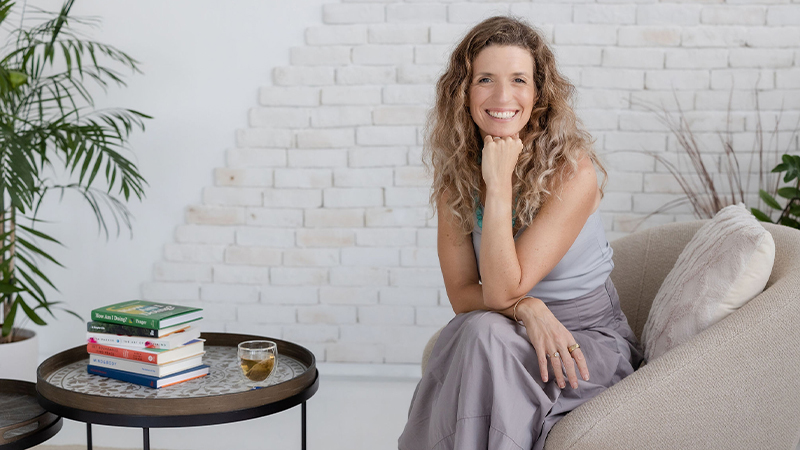
The practice provides evidence-based and nonjudgemental psychotherapy and counselling to individuals, couples, children, teenagers and families, with a team of highly qualified clinical and educational psychologists, counsellors, psychotherapists, art therapists and therapists in training.
Further therapy services include educational and diagnostic assessments, Cognitive Behavioural Therapy (CBT), Acceptance and Commitment Therapy (ACT), Gottman Method Couples Therapy, Compassion Focused Therapy (CFT) and art and play therapies. The team of therapists also work closely with corporates to provide services and training for Employee Assistance Programmes.
“Regular clinical supervision, training and peer support ensure our clinicians have the tools they need to provide the best and most effective mental support to our community,” says Dr Waddington. “We’re dedicated to working collaboratively and creatively with our clients to understand their story, address challenges and help them achieve a life full of meaning and purpose.”
Us Therapy
• 10 Winstedt Road, #02-10/11
• #01-02 Phoenix Park, 312A Tanglin Road
6980 8580 | us-therapy.sg
Unique app-based counselling
Looking for a convenient and affordable way to access counselling in Singapore? A first of its kind, WriteNow.Care is the only mobile platform that allows clients to privately engage with certified professional counsellors for as little as $15 a week from wherever you are.
Once you’re signed up to the easy-to-use app, you’ll be matched with a personal counsellor within 48 hours and can start accessing therapy as and when you need it throughout the month – via texts, voice messages, video call, audio call or live chat sessions.

This unique model aims to make counselling a part of daily life, rather than waiting for a traditional weekly 45-minute therapy session. Alongside live sessions, the messaging and audio recording functionally allows clients to write down or record their thoughts and feelings at their convenience.
Speaking of mental health care, DR SONYA BRUNER, co-founder and chief clinical officer of WriteNow.Care, says, “It should not just be normalised, it should be celebrated. We are always happy to share or get celebrated for taking care of our physical health by going to the gym or eating healthily; why not do the same for our mental health?”
WriteNow.Care’s services are for ages 18 years and above and are not meant for crisis counselling or those suffering from severe mental health issues.
Download the WriteNow.Care app on the App Store or Google Play Store. You can also use the promo code “EXPATLIVING” for a 50 percent discount for two months! All plans can be cancelled at any time with a money-back guarantee.
Stress and anxiety management
Want to learn effective strategies to manage stress and anxiety, better understand your thoughts and emotions, gain deeper insights into yourself, and improve your overall wellbeing? The Psychology Practice’s dedicated team of senior clinicians are well versed in the assessment and treatment of mental health issues from childhood through to adulthood, including depression, mood and anxiety disorders, anger management, self-esteem and identity concerns, school or work struggles, relationship issues and parenting challenges.

With both in-person and remote consultations available, the experienced therapists provide one-on-one sessions that are tailored to your unique needs, helping you navigate life’s challenges and achieve personal growth.
Beyond stress and anxiety management, The Psychology Practice’s comprehensive range of evidence-based therapies and services cover individual therapy, couples therapy and family therapy, alongside counselling for trauma and post-traumatic stress disorder. Further areas of specialty include psychological assessments to understand strengths and challenges, and specialised support for individuals struggling with substance use disorders.
The Psychology Practice (aka TPP) also hosts wellness workshops to explore mindfulness, self-care practices and personal development, and runs a popular psychology blog, The Practice Log Plog, which chronicles interesting and controversial clinical issues.
The Psychology Practice
178 Clemenceau Avenue, #3-00, Haw Par Glass Tower, 239926 (from 14 November 2023)
9880 1154 | thepsychpractice.com
Embracing change and navigating expat life
The seasoned team at Psychology Blossom adopts a holistic and personalised approach, integrating various therapeutic techniques to meet the unique needs of each client. They recognise the unique challenges faced by expatriates, too, creating a confidential and supportive environment for individuals, couples and families to explore the complexities of their relationships and build stronger connections.

“Cultural adjustments and distance from familiar support systems can add an extra layer of stress to relationships and family dynamics,” observes Claudia Doig, senior clinical psychologist at Psychology Blossom. “Our role is to provide a space for exploration and growth, helping our clients navigate these challenges and find balance in their lives through specialised services.”
Here’s a handful of ways they can help:
Marriage counselling: The practice has skilled therapists who use techniques like Emotionally Focused Therapy (EFT), the Gottman Method and Narrative Therapy to help decode communication styles, restore trust and rekindle closeness. Through these tools, couples can strengthen their connection and flourish during their time in Singapore.
Family therapy: Aware of the unique dynamics within expat families, Psychology Blossom creates a supportive environment where each family member can express themselves and work collaboratively toward resolution and strength. Techniques used include Systemic Family Therapy, Solution-Focused Brief Therapy (SFBT) and Cognitive-Behavioural Family Therapy (CBFT).
Child therapy: Tailored to the specific needs of children in a multicultural context, the practice provides a nurturing space for young ones to express themselves, learn coping skills and develop emotional resilience. Techniques used include Child-Centred Play Therapy, Art Therapy and Cognitive-Behavioural Therapy (CBT).
Psychology Blossom
#07-02 Wing On Life Building, 150 Cecil Street
8800 0554 | psychologyblossom.com
Empowering women through transitions
Job changes, health setbacks and relationship shifts can be emotionally challenging. Khyrana Oktivia Pambudi, founder and integrative counsellor of Morphosis by Choice, is skilled at recognising the intricacies of each transition and guiding women through these situations using a combination of highly effective strategies.

“Life transitions can be perceived as opportunities for personal growth,” says Khyrana. “With compassionate and empathetic professional guidance, along with the integration of self-care practices and strong support networks, these transformative experiences can foster resilience and self-discovery.”
Individual counselling sessions are conducted online via Zoom, while further areas of specialty include tailored strategies for coping with grief and loss, parenting concerns and stress and anxiety.
Beyond individual counselling and psychotherapy – or, as Khyrana puts it, “personal training for your mental wellbeing” – she provides walk and talk therapy in various public parks across Singapore. This unique therapy integrates nature and movement with life coaching for both physical and emotional benefits.
9038 0520 | morphosisbychoice.com
The transformative impact of life and career coaching
When it comes to navigating the complexities of careers, relationships and corporate dynamics, a guiding hand can make all the difference. Dr Jade Kua is master-certified by the International Coaching Federation, placing her in the top four percent of coaches globally.

From shaping career paths and the trajectories of corporate teams, to fostering meaningful connections, finding fulfilment and helping individuals and corporates set and achieve goals, Dr Kua’s holistic approach elevates individuals and propels entire teams towards high performance.
Her medical background in paediatric emergency medicine and trauma makes her sought-after among clients who need to make critical decisions in stressful conditions. Offering both in-person and online consultations, the positive ripple effects of Dr Kua’s unique coaching strategies can be felt across personal, interpersonal and professional spheres.
“Coaching is statistically proven to improve demonstrable skills like work performance as well as important attributes like self-confidence, or communication with others. Let’s journey towards your goals together,” says Dr Kua.
Jade Life and Wellness Academy runs professional coaching courses, along with masterclasses and workshops.
#03-01 Camden Medical Centre, 1 Orchard Boulevard, 248649
hello@jadelifeandwellness.com | jadelifeandwellness.com
This article on counselling practices in Singapore offering marriage counselling and family and couples therapy first appeared in the October 2023 edition of Expat Living. You can purchase the latest issue or subscribe, so you never miss a copy!
To make the most of living in Singapore, read our latest City Guide here for free!
Found this article on marriage counselling and family and couples therapy in Singapore interesting? Visit our Wellness section for more tips on managing your mental health.




